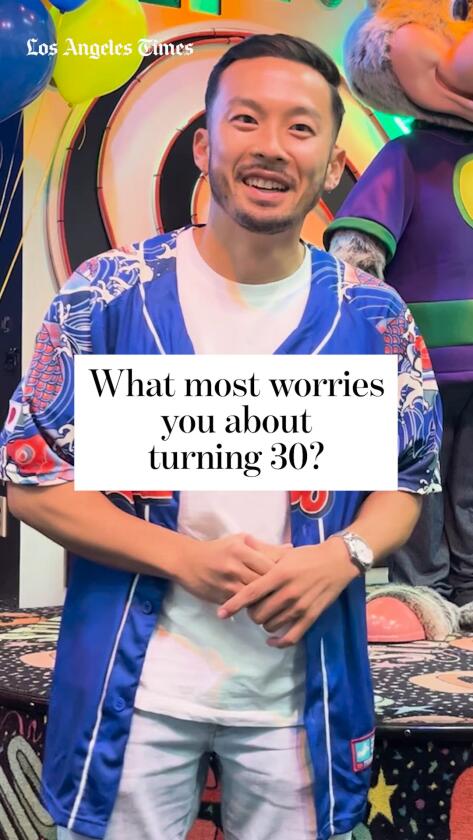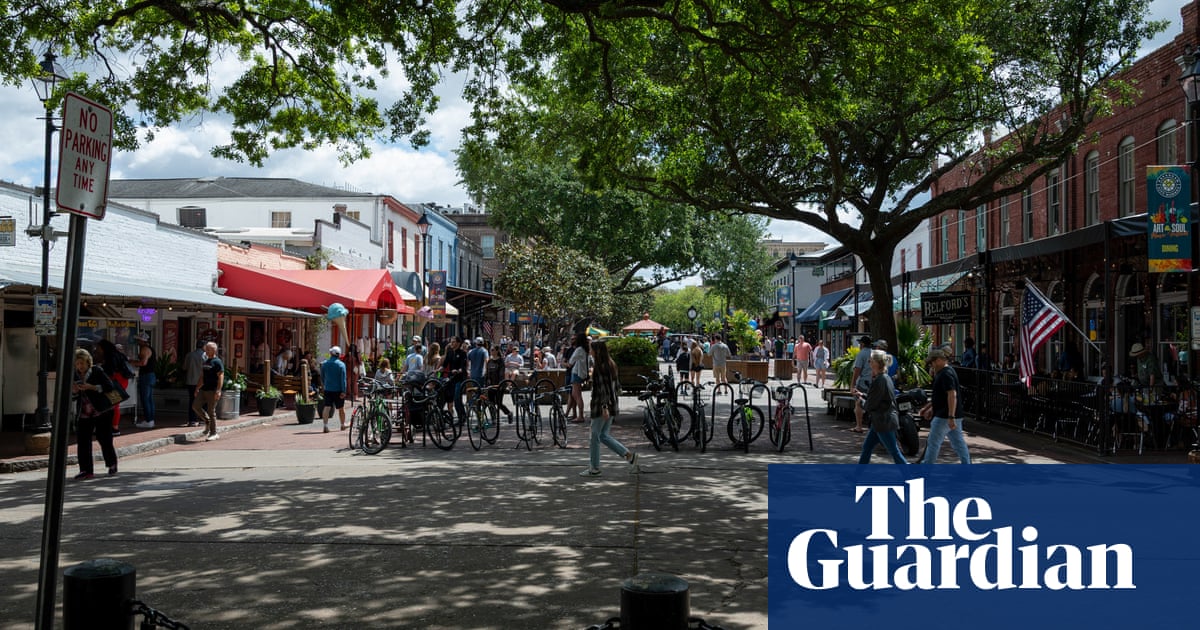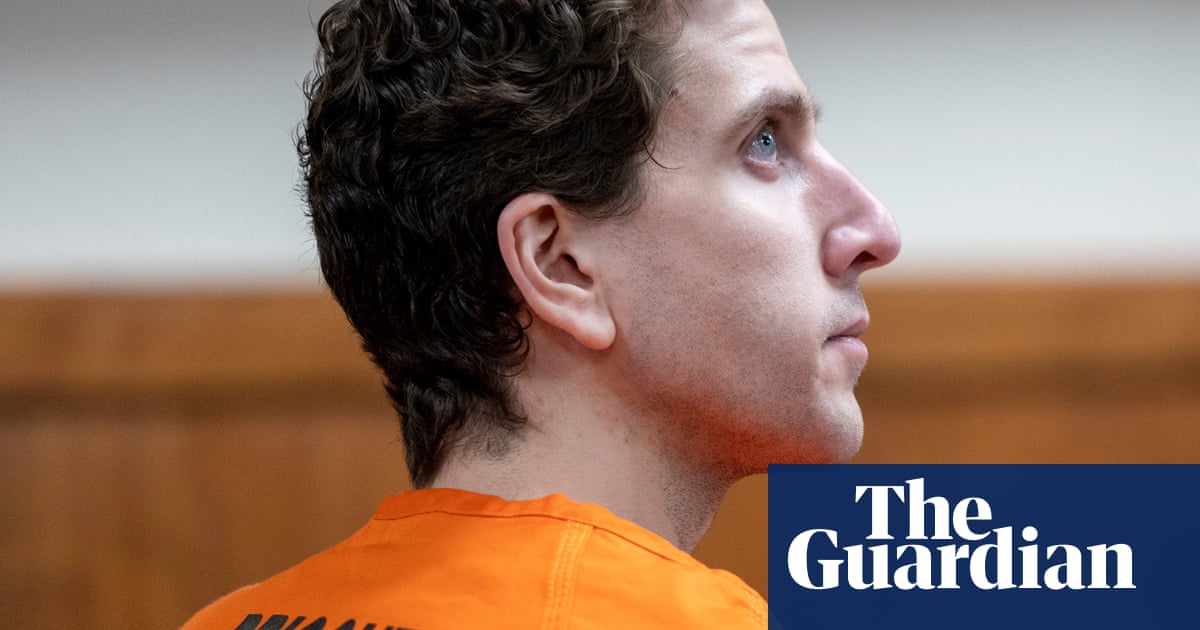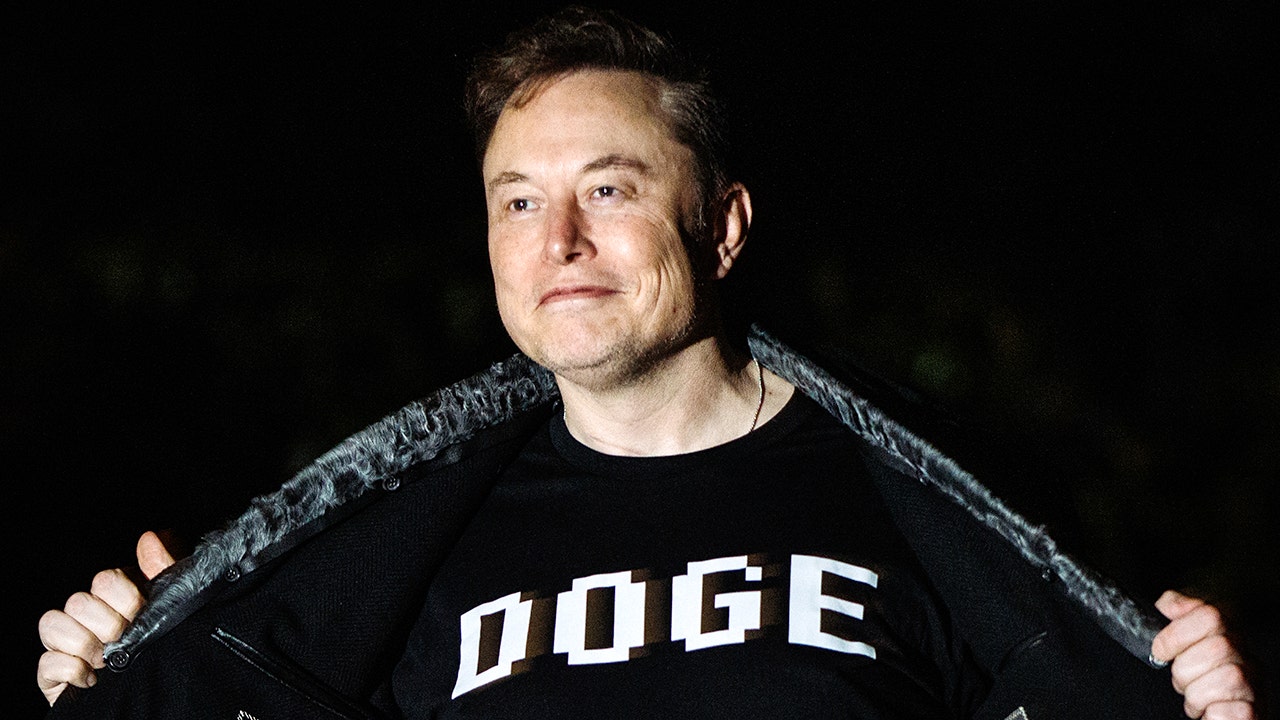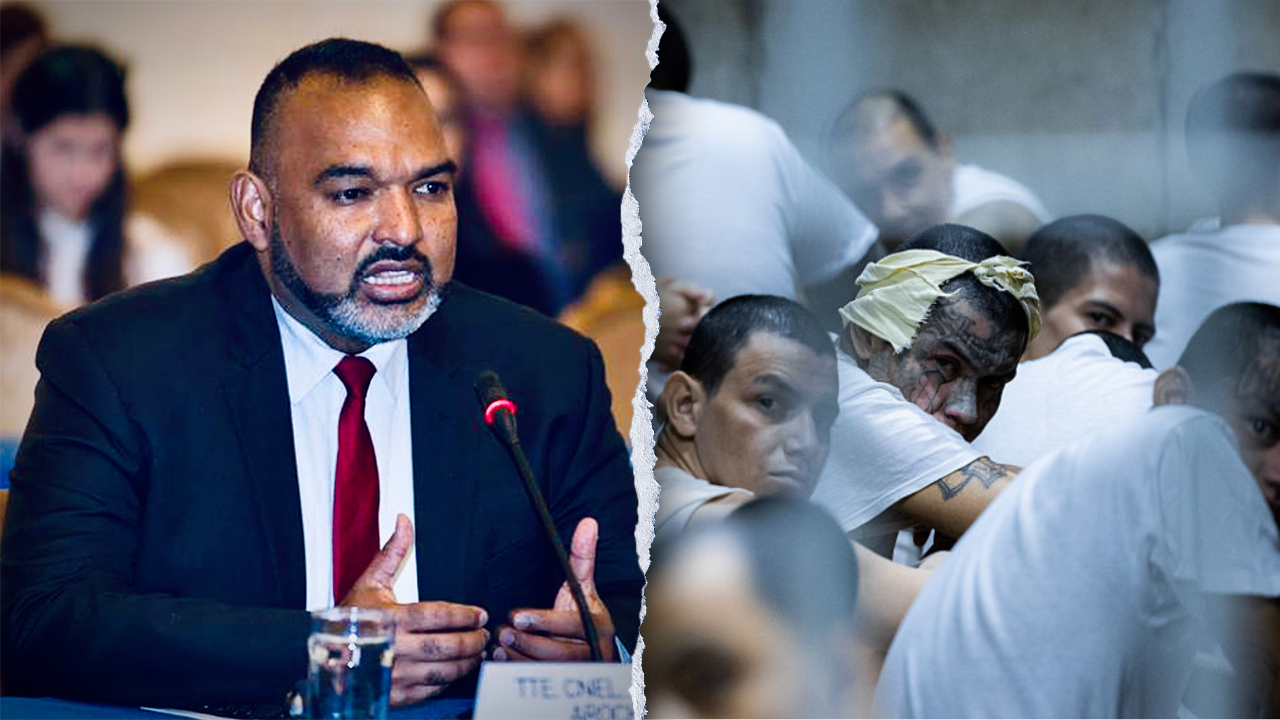Lifestyle
They're about to turn 30. Their views on ambition, love and 'hotness' feel revolutionary
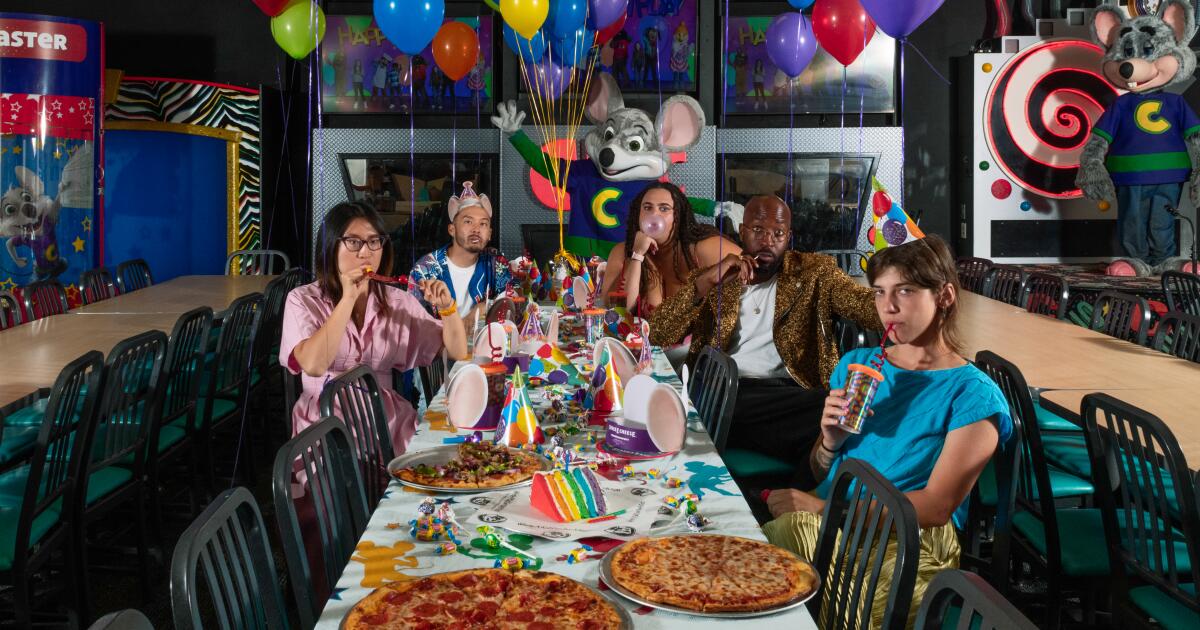
One night when I was out at a bar, reporting for a story, I struck up a conversation with a comedian who was in her early 30s. I’d recently turned 29 and I expressed that I was feeling anxious about my impending milestone birthday.
“The worst part about 30 is 29,” she told me in a playful yet reassuring tone. It was a joke that her comedian friend Kevin had shared with her.
The words felt true. Since my 29th birthday, I kept thinking about all of the things I hadn’t achieved yet. I hadn’t made the Forbes 30 under 30 list, I had no prospects for a husband, the sheer thought of having a pet (let alone a child) made my stomach turn and the only valuables I owned were my iPhone and my car.
Arguably, turning any age can lead someone to think about all they have yet to accomplish, but there’s something distinct about being 29 years old. It exists right there on the brink between your 20s, when you’re expected and encouraged to make many mistakes, and your 30s, when society suddenly expects you to have it all figured out because you’re suddenly an actual adult. So if you’ve reached the final lap of your 20s and you haven’t crossed off multiple culturally defined boxes — get married, have a family, buy a house and have a thriving career, etc. — it’s easy to feel left behind.
Eventually, I had a mental shift. I figured that it was unlikely that I’d accomplish all of these things within a year, so I decided to focus on making 29 the most memorable year of my 20s — a last hurrah, if you will — and to set myself up for success in my 30s. I realized that I didn’t need to rush to check milestones off my bucket list just because I was turning 30. I still had time and the self-imposed pressure was neither helpful nor necessary. I just needed to be present.
I knew I couldn’t be the only person who had big feelings about turning 30, so I started talking to other 29-year-olds in L.A. about their anxieties, fears and hopes for crossing over the 30 bridge. While some said their life doesn’t mirror what they thought it would look like at this age, many are more hopeful than anxious about what’s to come. This story features six Angelenos on the brink of 30, photographed in their homes around L.A. We also had a birthday photo shoot at iconic entertainment center Chuck E. Cheese. It’s a nostalgic place for people my age — I had my very first birthday party there so it felt only right to return.
As I get ready to celebrate my 30th birthday, I’m feeling excited about what feels like a new chapter in my life. Reflecting on my 20s, I dedicate Cleo Sol’s song “Rose in the Dark” to this revelatory whirlwind of a decade. The next one will be even sweeter.
Responses have been lightly edited for length and clarity.

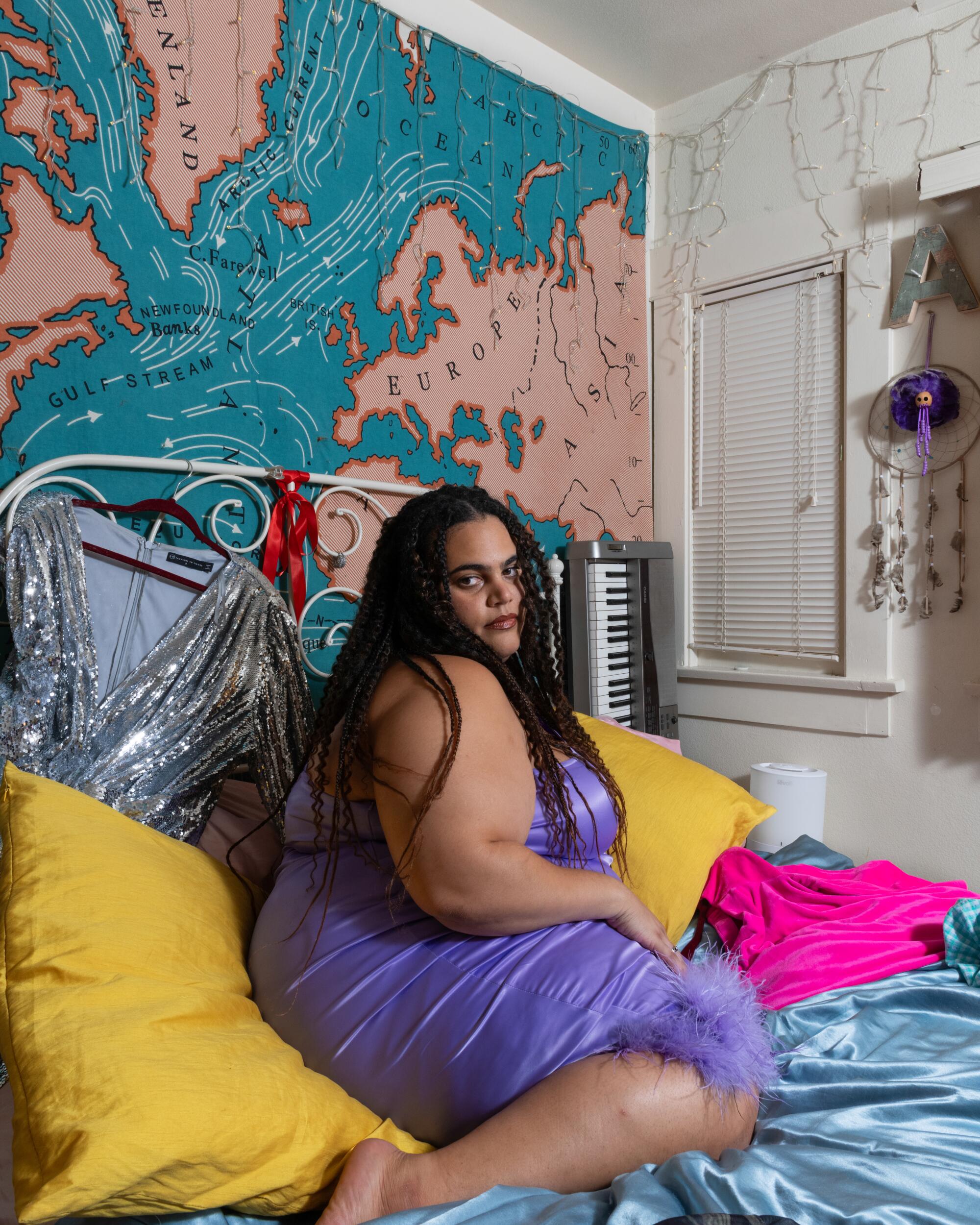
Anabel Inigo at home in Mid-City.
Occupation: Assistant to TV producers
How are you feeling about turning 30?
I always think about if my 13-year-old self would be proud of me and how 30 felt so important to me. By 30, I wanted to have made my first film, be a millionaire, have made the [Forbes] 30 under 30 list, but I’ve done none of those things. At my job as an assistant — with an MFA I thought I needed — I’m cleaning a coffee pot and I’m so worried that all of my decades will just never bring what I expect. I know you learn more as you grow up but what if all you learn is that you shouldn’t be ambitious? And what does that mean when that’s always been such a big part of who you are?
Have other people placed any expectations on you because you are turning 30?
My mother and my grandparents always wanted big things for me. I am a first-generation college student from a family where my generation should be the ones that “make it.” What does that mean when I haven’t?
“I’m so worried that all of my decades will just never bring what I expect. I know you learn more as you grow up but what if all you learn is that you shouldn’t be ambitious?”
— Anabel Inigo
How are you spending the last year of your 20s?
Being an assistant, following my dream. I have two roommates, living in a city I always wanted to live in, but still in so many ways I’m unfulfilled.
What do you hope your 30s will look and feel like?
I want my 30s to be the years where what I wanted in my 20s comes true. I was in grad school until I was 26, so this will be the first decade I’m not in school and I can just focus on myself. For my 30th birthday, I plan to go on a cruise, something I did when I was 15. Maybe I’m starting a tradition?
What song would you like to dedicate to your 20s?
“Gotta Get Through This” by Daniel Bedingfield.

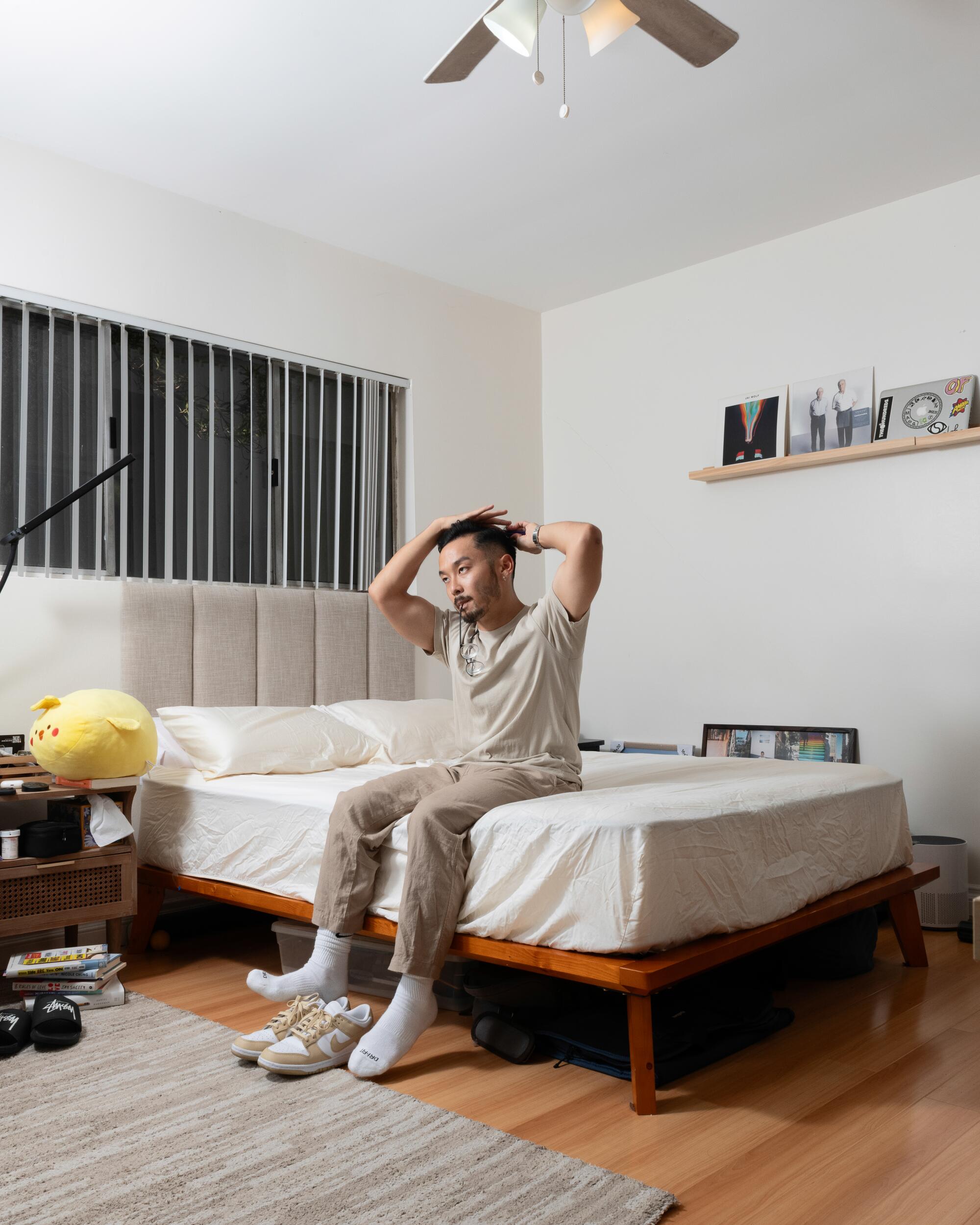
Ryan Kageyama poses for a portrait in his home in Palms, Los Angeles.
Occupation: Works in tech operations
How are you feeling about turning 30?
Turning 30 is the inevitable milestone often used as a baseline for other life achievements such as getting married, having kids and becoming a homeowner. I am nowhere near accomplishing any of those milestones as I am a bachelor living on the westside of L.A. Yet, I don’t feel any sense of urgency to settle to pursue any specific life goals since most of my peers are in a similar situation. I love my job and the flexibility that comes with it and I have an active social life on the weekends. I am planning for the future without sacrificing too much in the present, which makes me feel at ease with the impending 30th birth year. My next step is finding out where I want to be for my 30s and to lay roots for the rest of my life, but I am not too concerned about it right now.
When I turned 20, I thought my life would be vastly different at the time I turned 30. I naively predicted based on societal norms and associated my own happiness to these details. Now that I’m about to turn 30 without a partner, kids or a home, I don’t feel disappointed nor do I feel unhappy. Everyone has their own journey. It’s yours to make the most of it.
Have other people placed any expectations on you because you are turning 30?
One of my siblings [recently] got married and my other sibling is on the journey to be married. Someone at my brother’s wedding asked me “Which sibling are you? The doctor or the single one?” This type of remark would [normally] bother me, but now I’ve given it a good laugh and moved on. The term “Funcle” is starting to sound nice to me and I will certainly embrace it.
How are you spending the last year of your 20s?
I’ve spent the last year of my 20s making meaningful connections with new faces and reconnecting with old friends. I started saying yes to more things like run clubs and random weekday outings. I worked on personal projects like stand-up comedy, podcasting and community organizing through coffee and music. Honestly, this has been one of the best years of my life and I’m still excited for the next decade.
“The term ‘Funcle’ is starting to sound nice to me.”
— Ryan Kageyama
What do you hope your 30s will look and feel like?
I imagine my 30s evolving into my self-care era. My body is catching up to me, and I think it’s about time to put my body and mental well-being before anything else. My knees won’t last forever but I will be damned if I didn’t try get the most of out them while I still can. I hope to finally buy a home in a location where I can set my roots. I want to get a dog too!
What song would you like to dedicate to your 20s?
“adore u” by Fred Again.

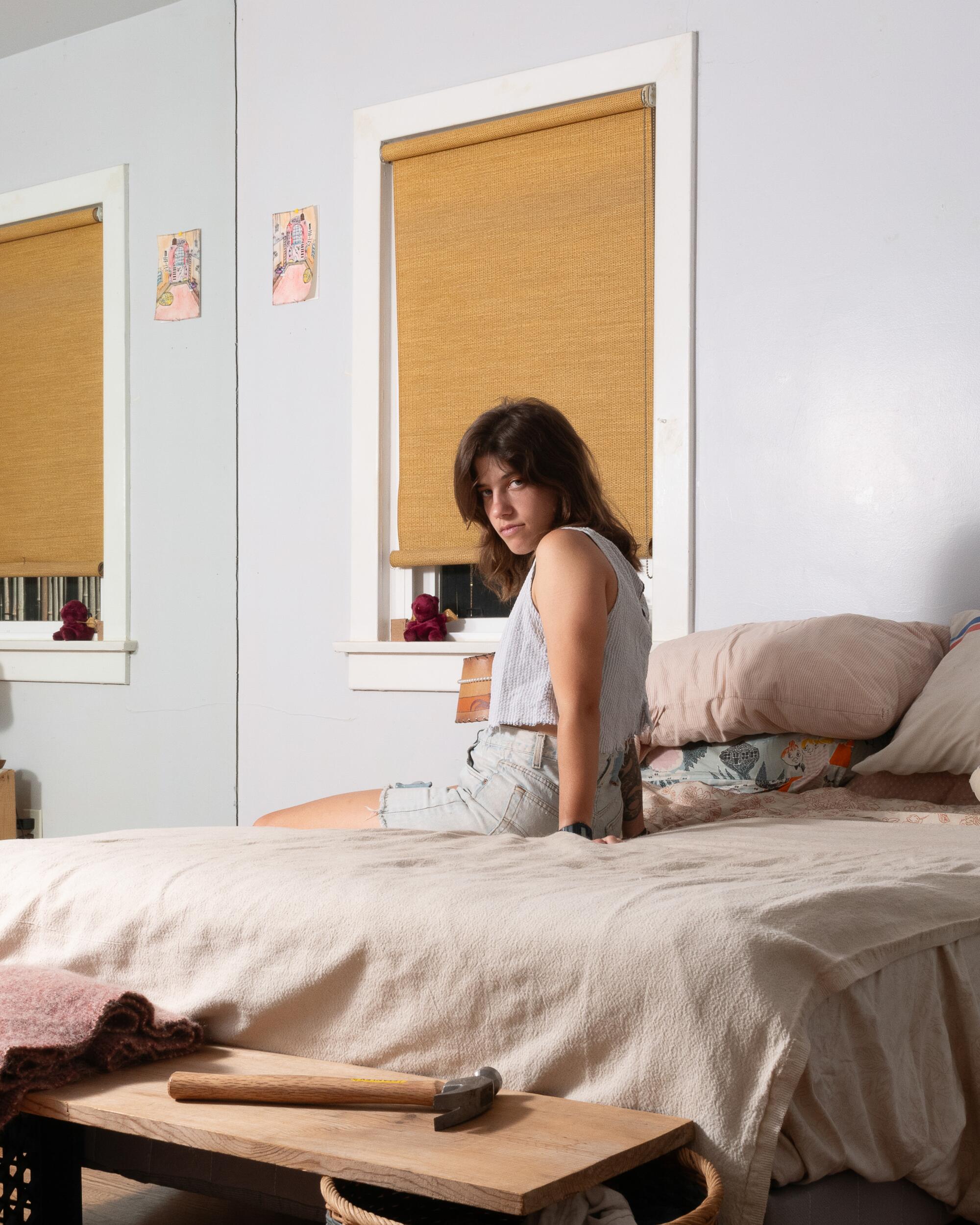
Nat Agoos at home in Mount Washington.
Occupation: Works at a nonprofit
How are you feeling about turning 30?
The overall feeling is appreciative. Every year I turn another year older, I become more and more aware of time, of the rapidity of life and of all the things I want to do before it’s all over. I wish we could live until, like, 300. And when I zoom in a bit more, I almost already feel nostalgia for the past nine years, which as we all know, are hectic ones. You exit your teens, the curtains to “adulthood” kind of suddenly whip open, and as they do (and as your brain is verging on becoming fully developed), you must, not so graciously, find your way. The tumult feels (slightly) less shaky and my path onward, after endless trial and error, feels just settled enough to garner a sense of confidence I definitely did not have in my early 20s.
But while I am feeling a greater sense of what I want and what I don’t want, I am simultaneously entering this middle space, between Phase 1 of adulthood and Phase 2 of adulthood, which has introduced a new type of uncertainty I haven’t met yet. It’s like, with this greater sense of who I am, who I want to be, the next natural step is to go forth with that knowledge, full steam ahead. To settle down. But as I exit my 20s I can almost feel them pulling me back, yelling from a distance, “Don’t go yet! There’s still so much chaos to impart on you!” The idea of “settling down” is a scary one.
Lastly, I feel young. More young than I’ve ever felt, even though I am older than I have ever been. I’m at this interesting age where while I still have [so] much to learn, I feel like I understand my life in a way I haven’t before. As my awareness of life increases, so does my awareness of how young I am (not to brag). As a kid/young adult, that thought doesn’t really cross your mind. I’d like to savor every last moment of it.
Have other people placed expectations on you because of your age?
If they have, I’ve been too busy imparting my own expectations on myself to notice!
How are you spending the last year of your 20s?
As I mentioned before, I am feeling equally pulled by the uncertainty of my 20s, and the “settled-ness” of my 30s. I plan to embrace being yanked, to absorb as much as I can, to bring as much of my free spirit and curiosity that early adulthood hands out at no charge into my next chapter, and to take things slow.
What do you hope your 30s will look and feel like?
I hope for a new type of chaos. A chaos where I get to explore the parts of me that I discovered in my 20s, giving space for missteps or unforeseen results. To harness my new sense of control in a way that doesn’t require me to 100% be in control. And to not to forget to continue to question, no matter how positive I may feel.
What song would you like to dedicate to your 20s?
“Praise You” by Fatboy Slim.

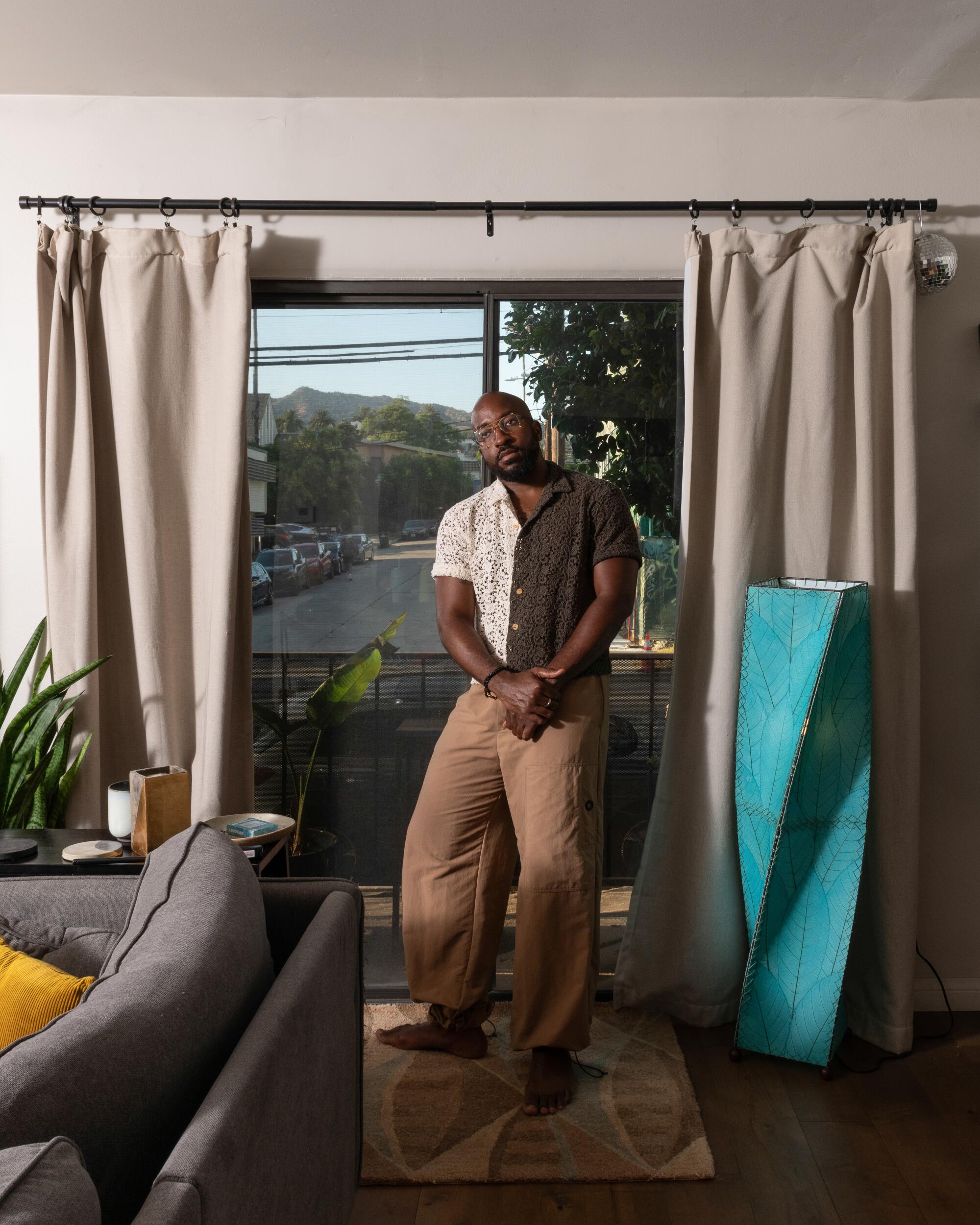
Dave Harris at home in Los Feliz.
Occupation: TV, film and theater writer
How are you feeling about turning 30?
Hot. I believe that everyone just gets hotter with every year of life and each birthday continues this trend. So actually more than anything, I just believe that I and everyone I love will get hotter and hotter by the year, by the day even. I don’t just mean aesthetically (though I do); I mean energetically. If this was the ascendant glow-up of the 20s, then my God the 30s, it’s full of stars.
Have other people placed any expectations on you because you are turning 30?
Society is generally bad at perceiving how old Black people are. Also all the men in my family lose their hair and grow beards at 25. So I’m often working in rooms where people assume I’m older than I am, and I let them. And because of life circumstances, I’ve had to operate like someone older than I am since elementary school. So in a way, turning 30 actually feels like I’ve been here for some time and now I just get to claim it.
How are you spending the last year of your 20s?
I’m working a lot and cooking for the people I love. I’m dancing more. I’m chasing spontaneity. I’m finding new things to love. It’s not some revelation. There are things I didn’t know I could love until I had a stable income. Like what the hell, if sixth-grade me who only had a microwave and mini-fridge at home could watch 29-year-old me make agnolotti del plin on a Tuesday?
What do you hope your 30s will look and feel like?
Because of generational instability, family hasn’t reliably been a part of my life and the trajectory of my life has often pulled me far away from the place I’m from (Philly). I’ve been proud of that because I’ve gotten to do and see so much more than what I grew up with. I travel, I work from a place of desire and not from a place of fear, I have a community of friends that I can’t imagine life without, and still, more than any other year, I find myself craving the irreplicable intimacy of family. This can be a lonely desire because so many people in my life have economically and emotionally stable families, so I hold this space tenderly. And yet, I hope that I’ll have the means to help carry my family with me through my 30s. Whereas my 20s were marked by a feeling of chasing, I think my 30s might be marked by a feeling of return. It’s hard to heal familial wounds when your family is living paycheck to paycheck.
“There are things I didn’t know I could love until I had a stable income. Like what the hell, if sixth grade me who only had a microwave and mini-fridge at home could watch 29-year-old me make agnolotti del plin on a Tuesday?”
— Dave Harris
I feel like I am a part of a generation of overachieving Black artists who maybe did not grow up with a lot and were taught that “Education is the key!” and through education and institutions, we toiled through that upwards mobility ladder. The 20s are a decade of mandated change. Turning 21, finishing college, grad school, first apartments, movement. If every parent wants their child to achieve a better life than they did, then I accomplished that by simply getting into college. Even though my career is in a scarcity-based industry, I feel I’ve been on a particular path with particular goals. In some ways, my 20s were both astronomical and predictable. My whole life I’ve defined myself by an idea of success, and every year that definition has become more and more uniquely my own. There has been such freedom in that. I’m so happy with my 20s. I want my 30s to be even happier. I’m most excited for the things I haven’t imagined yet. I can’t believe that I sound this optimistic because I don’t think of myself as an optimistic person, but there are so many other ways my life could have turned out.
What song would you like to dedicate to your 20s?
“Back in my Bag” by Rapsody

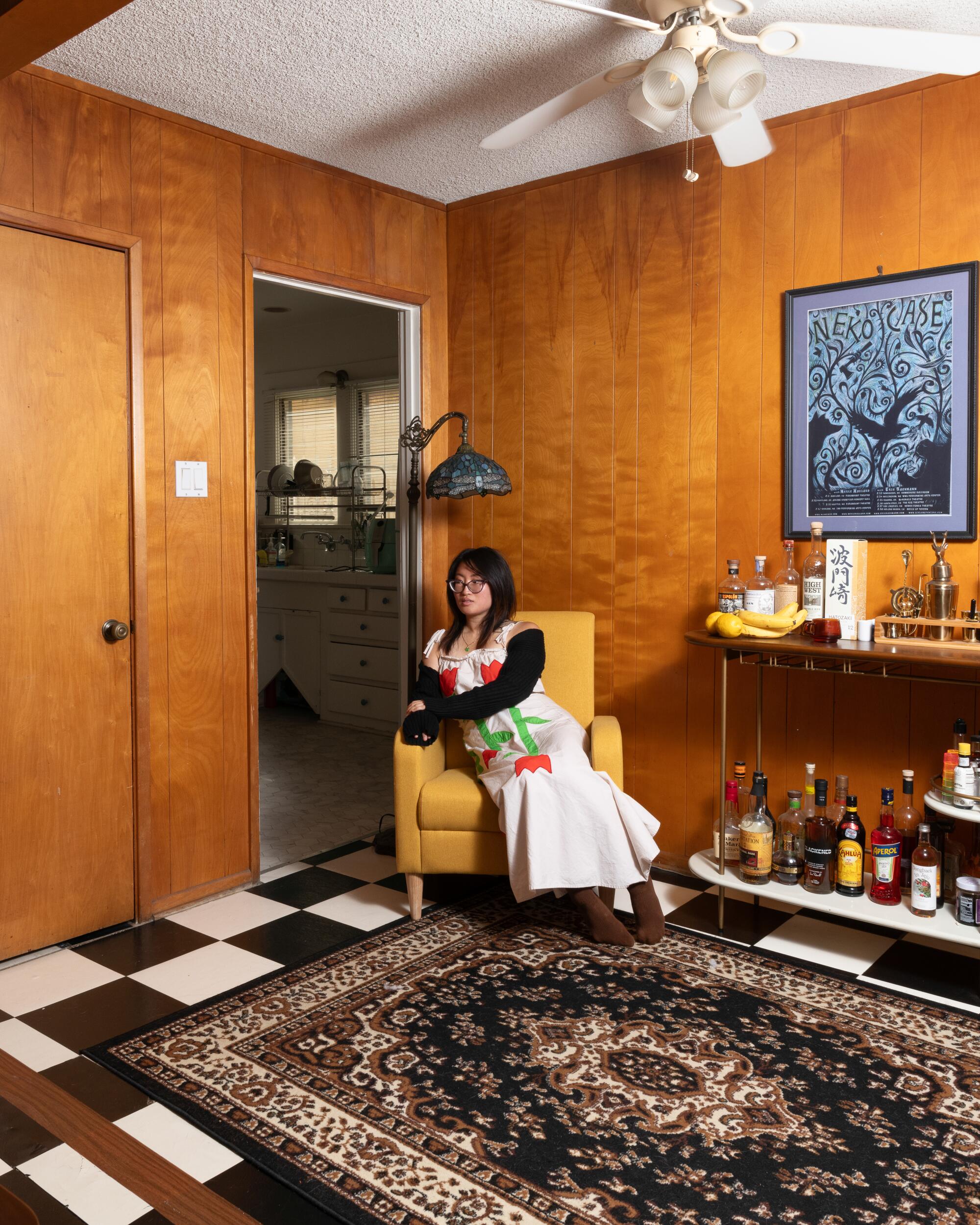
Holly Giang at home in Los Feliz.
Occupation: Works in product strategy
How are you feeling about turning 30?
I’m thrilled; I’m confident that my 30s will be my most fulfilling decade yet. My 20s were full of rich experiences, and it was full of hustle, vulnerability and decision paralysis. As I enter my 30s, I feel extremely curious, energized and at peace. I believe I now have the luxury of time to savor the present and the resources to try out the things my kid self wanted to do.
Have other people placed any expectations on you because you are turning 30?
Yes. I’ve certainly been fielding more questions from family (and strangers) about marriage and children. Societal expectations undeniably place a heavy burden on women in the workplace and at home. Having clarity and conviction (and therapy!) has allowed me to set and manage these expectations with my family since my early 20s, which has helped me to navigate the pressure and remain unbothered.
How are you spending the last year of your 20s?
After navigating three stressful life events, including ending my long-term partnership and moving to L.A. on the same day, I’m focused on reprioritizing my life and being more self-serving. I want to make sense of this city, to plant roots and build community. My food expeditions via bike and Metro have served as the gateway to feeling more connected to different parts of the city, and I’ve met plenty of kind Angelenos along the way.
What do you hope your 30s will look and feel like?
Based on what I learned in my 20s, I’m hoping my 30s will be marked by a renewed sense of confidence, independence, growth and adventure.
What song would you like to dedicate to your 20s?
“Unwritten” by Natasha Bedingfield.

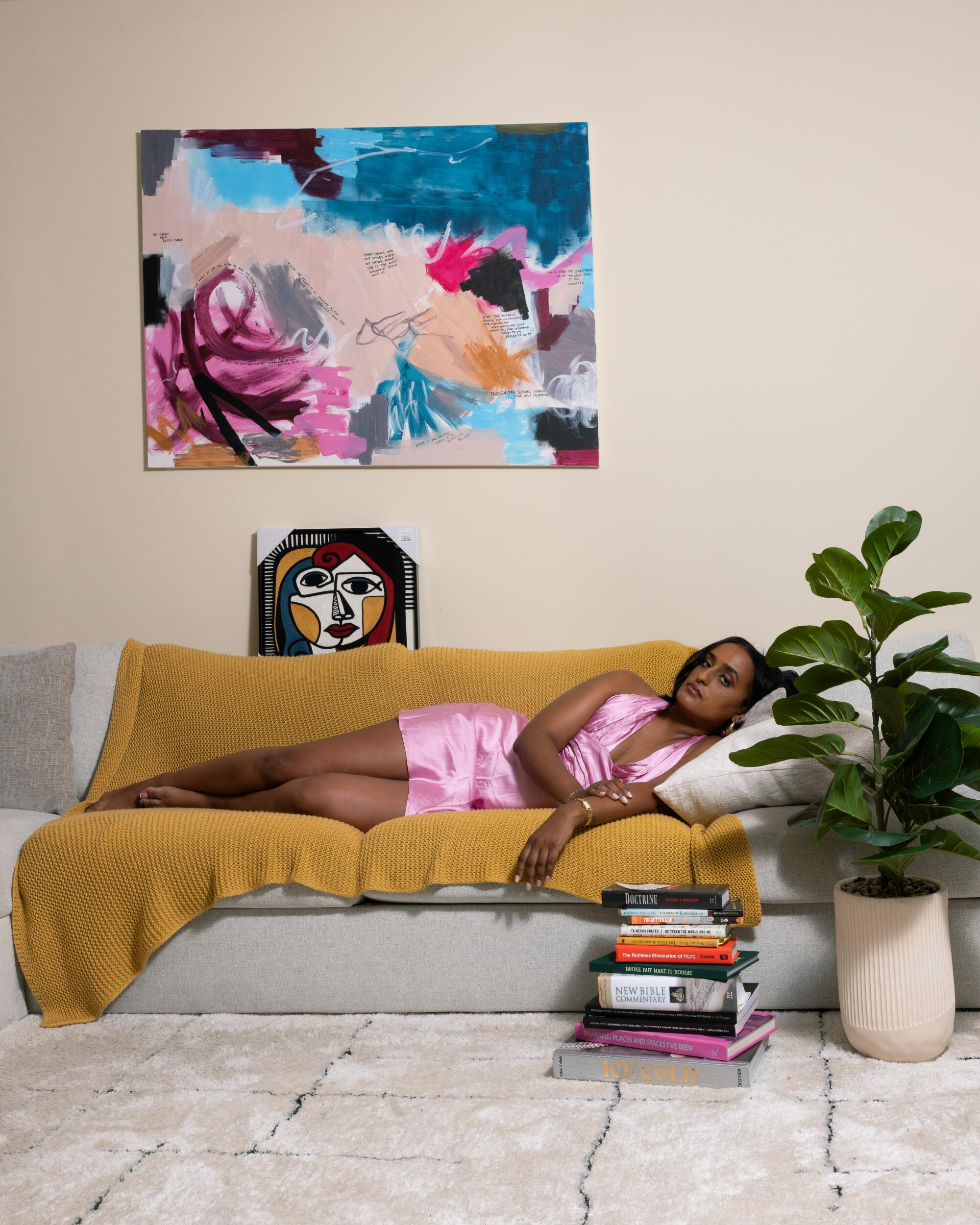
Kidist Mekonnen at home in Inglewood.
Occupation: Senior associate project manager
How are you feeling about turning 30?
If you asked me a couple years ago, I would have told you that I was terrified. But now as I get closer, I’m much less anxious. Part of that being that it’s a blessing to grow older, wiser and the lessons of my 20s will help me step into my 30s.
Have other people placed any expectations on you because you are turning 30?
Absolutely. I know most people have good intentions when asking about different milestones you need to hit at a certain age, but I think there is often a lack of acknowledgment of how it may make us feel. Social media already spews out enough expectations on us, so it can get even more overwhelming when it comes directly from family and friends. I constantly remind myself of the many milestones we can celebrate for others that are not just the typical ones. To feel loved and celebrated at any stage and moment in life feels amazing and I hope to do that for all my friends.
How are you spending the last year of your 20s?
My biggest regret was not traveling aboard in college and now as a real adult I’m trying to play catch-up with my travels. I’m hoping I can spend more time this year exploring! I have yet to take my first real solo trip internationally, so I’m looking forward to planning that. I also want to spend a lot of time outdoors and prioritizing my health/fitness. I’m also allowing myself to feel all things I need to feel. I’m so grateful for God and what He’s been able to show me this last half of my 20s.
What do you hope your 30s will look and feel like?
I pray my 30s will be a lot of time spent laughing, loving on others and being kind to myself. There’s so much I can say I want to plan for now, but being in my last year of my 20s, I just want to be in the moment and be around my community.
What song would you like to dedicate to your 20s?
“Beautiful” by Mali Music.

Lifestyle
PBS and Minnesota public TV station sue Trump White House
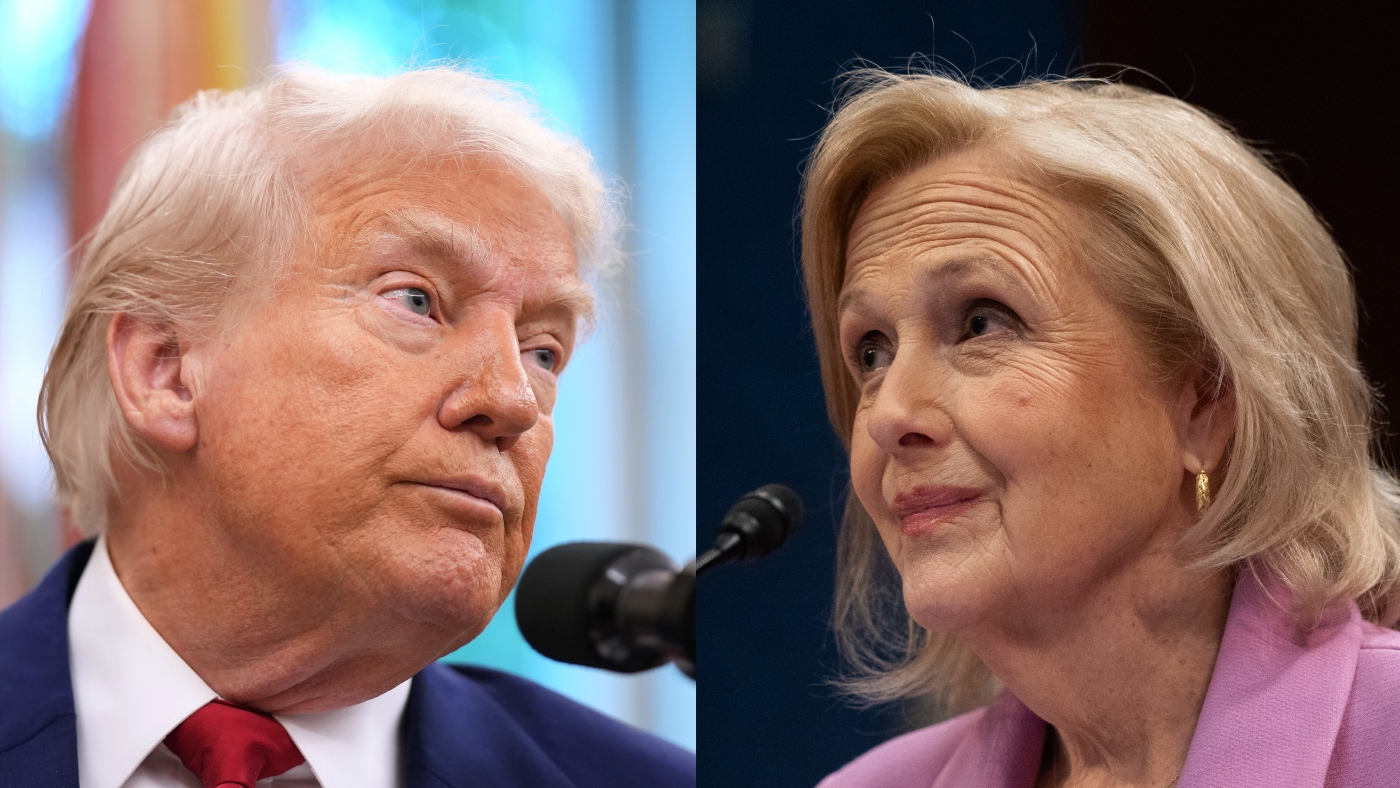
President Trump issued an executive order directing the Corporation for Public Broadcasting and public television stations to withhold funds from PBS. On Friday, PBS — led by Paula Kerger (right) — and Lakeland PBS of Minnesota sued.
Andrew Harnik/Getty Images, Nathan Posner/Anadolu via Getty Images
hide caption
toggle caption
Andrew Harnik/Getty Images, Nathan Posner/Anadolu via Getty Images
PBS and a public television station in rural Minnesota filed suit on Friday against President Trump over his executive order demanding that the Corporation for Public Broadcasting kill all funding for the network.
The suit alleges Trump’s order is unlawful, exceeding his authority as president and violating Constitutional protections of free speech because he has made clear he doesn’t like PBS’s news coverage and programming.
“This action challenges an unprecedented presidential directive attacking PBS and its member stations… in a manner that will upend public television,” the lawsuit states.
It continues: “The EO makes no attempt to hide the fact that it is cutting off the flow of funds to PBS because of the content of PBS programming and out of a desire to alter the content of speech. That is blatant viewpoint discrimination and an infringement of PBS and PBS Member Stations’ private editorial discretion.”
PBS President and CEO Paula Kerger declined comment Friday.
In a statement, the network said, “After careful deliberation, PBS reached the conclusion that it was necessary to take legal action to safeguard public television’s editorial independence, and to protect the autonomy of PBS member stations.”
The Minnesota station echoed PBS’ logic, saying it joined the lawsuit “to underscore the dire consequences on local member stations and our programming.”
In response, the White House said CPB is “creating media to support a particular political party on the taxpayers’ dime.”
“Therefore, the President is exercising his lawful authority to limit funding to NPR and PBS,” White House spokesperson Harrison Fields said in a statement. “The President was elected with a mandate to ensure efficient use of taxpayer dollars, and he will continue to use his lawful authority to achieve that objective.”
Trump’s executive order accuses NPR and PBS of failing to provide “fair, accurate, unbiased and nonpartisan news.” He asserts that there are plenty of media options for people to choose from nowadays.
“Government funding of news media in this environment is not only outdated and unnecessary but corrosive to the appearance of journalistic independence,” the order states. It bans CPB from sending any money to PBS and NPR, and bars local stations from sending the networks any federal money.
On social media platforms, Trump has blasted the networks in capital letters: “REPUBLICANS MUST DEFUND AND TOTALLY DISASSOCIATE THEMSELVES FROM NPR & PBS, THE RADICAL LEFT ‘MONSTERS’ THAT SO BADLY HURT OUR COUNTRY!”
The two networks reject that characterization.
Beyond that, the lawsuit filed by PBS and Minnesota affiliate Lakeland PBS argues, “regardless of any policy disagreements over the role of public television, our Constitution and laws forbid the President from serving as the arbiter of the content of PBS’s programming, including by attempting to defund PBS.”
PBS follows NPR and CPB into court
PBS’ legal action follows parallel litigation filed on Tuesday by NPR and three Colorado public radio stations against the Trump administration on the same grounds.
The public television court filings say PBS would lose $81 million per year in federal grants and “a substantial portion” of the $227 million that public TV stations pay it in order to run programs that range from children’s shows to Ken Burns documentaries. A day after Trump issued his order, the U.S. Education Department cancelled a grant to CPB and PBS that paid for a major educational initiative – about $31 million annually.
Lakeland PBS, serves a region in Northern and central Minnesota that includes some of the state’s poorest counties and several tribal reservations. The station offers the only nightly television news program covering the region and offers curricular videos, lesson plans and other resources for local educators, according to the lawsuit.
While PBS member stations receive, on average, about 15% of funding directly from CPB, Lakeland PBS relies on federal grants from CPB for 37% of its annual revenues. It says that all of the money it pays PBS for programming and other services comes from those federal funds.
PBS shows make up more than half of Lakeland PBS’s lineup.
The lawsuit contends that Lakeland PBS does not have enough unrestricted funds simply to shift other money over to pay for the cost of PBS programs. And it says that financial support from local companies is declining, not increasing. Locally based philanthropic money has been hard to come by.
“Lakeland PBS cannot readily or affordably replace such content and services,” the lawsuit states. “The EO’s indirect funding bar thus poses an existential threat to Lakeland PBS, the only local source of television programming for hundreds of thousands of Minnesotans.”
The suit was filed by Akin Gump Strauss, a major Washington-based law firm.
Trump’s order, issued on May 1st, has been rejected by the board of the privately incorporated CPB, through which federal money allocated by Congress flows to public broadcasters, primarily local stations. CPB has not adopted the president’s decree. It is suing him over another executive order purporting to fire three of its five members.
Like the NPR and PBS lawsuits, CPB’s suit points to protections written into law by Congress safeguarding CPB and public broadcasters from political pressure applied by federal officials. They argue that includes the president.
Congress awaits request to claw back funds
According to House Speaker Mike Johnson and other lawmakers, Trump is intending to send a formal request to Congress in early June to rescind the $1.1 billion it has allocated for public broadcasting for the next two years.
That spending was approved by the Republican-led U.S. House and Senate earlier this year and signed into law by Trump. It’s unclear when the House and Senate will take up the measure, but Johnson recently mentioned the rescissions package as part of a focus on enacting more spending cuts. He vowed to “act quickly.”
Congress would have 45 days to approve the rescission request, once received, for it to take effect.
Disclosure: This story was reported and written by NPR Media Correspondent David Folkenflik with contributions from NPR Congressional Correspondent Deirdre Walsh. It was edited by Deputy Business Editor Emily Kopp, Managing Editor Vickie Walton-James and Managing Editor Gerry Holmes. Under NPR’s protocol for reporting on itself, no corporate official or news executive reviewed this story before it was posted publicly.
Lifestyle
The BoF Podcast | Giancarlo Giammetti on Securing Valentino’s Legacy

Lifestyle
'Succession' creator's new moguls are tech gods gazing down from 'Mountainhead'

Mountainhead actors (l-r) Ramy Youssef, Cory Michael Smith, Steve Carell and Jason Schwartzman
Macall Polay/Warner Bros. Discovery
hide caption
toggle caption
Macall Polay/Warner Bros. Discovery
Jesse Armstrong has been thinking a lot about billionaires.
The creator of HBO’s Succession has written and directed a new movie — Mountainhead — about four uber-rich leaders of tech. They’ve assembled at a mountaintop chateau for what’s supposed to be a weekend of poker and conversation — an “intellectual salon,” as Jason Schwartzman’s character Hugo Van Yalk puts it.
Meanwhile, the world below them is falling into chaos. They watch news reports of mass executions, governments toppling — all because one of them, Venis, owns a social networking company that’s made sharing deep-fake videos very easy.
As Venis’s rival, Jeff, puts it: “Now you’ve inflamed a volatile situation, and people are using generative AI to circulate hyper-personalized messages, unfalsifiable deep-fakes… promoting genocidal proximate attacks, creating sectarian division with video evidence, massive market instability, fraud!”
The question at the heart of Mountainhead is this: What do these tech gods do about the carnage while watching from their Mount Olympus?
As Jesse Armstrong told Morning Edition host A Martínez, “When you’re on yachts and in private jets and in gated communities, you are physically removed from your fellow human beings. That has a psychological effect, I think.”
Armstrong says the central relationship in the film is between Venis (played by Cory Michael Smith) and Jeff (Ramy Youssef), who’s developed an AI application that might solve Venis’s problem. But Jeff is being coy about whether or not they’ll partner up. “On one level,” Armstrong said, “he’s the worst in that he could help stop the worst things that are happening in the world if he was to cooperate. Now, whether Jeff trusts Venis is a question. He is unwilling just to roll the dice in the hope that his friend will act in a way that’s beneficial to humanity.”
The patriarch of the group is Randall (Steve Carell), a venture capitalist who’s guided them to their wealth. As they consider solutions to the crisis, they’re also considering ways they can take financial advantage of the situation. At one point, Randall says, “That’s why I’m so excited about these atrocities!”
“There’s a spectrum of behaviors,” Armstrong said of his four main characters. “On one end, you have confidence, which is probably a positive quality one needs to get through life. And the extreme version of that is arrogance. Where each of them falls on that spectrum, the viewer can decide — but they think they have the solutions and they would like to apply them to the world. That requires a great degree of confidence. And maybe you see when that confidence tips over into arrogance in this film.”
Armstrong likens that extreme confidence to some of today’s real-life tech leaders. “They are at a frontier of knowledge which is shaping our world, and they rightly think that they know more about that on the whole than we do. So the level of trust that we’re being asked to put in them is enormous… We really have got nothing to do other than hope that these people, to some degree, have the rest of humanity’s best interests in mind.”

Mountainhead writer/director Jesse Armstrong (left) consulting with actor Steve Carell
MACALL POLAY. SMPSP/Warner Bros. Discovery
hide caption
toggle caption
MACALL POLAY. SMPSP/Warner Bros. Discovery
The audio version of this story was produced by Ana Perez. The digital version was edited by Olivia Hampton.
-

 Education1 week ago
Education1 week agoVideo: Columbia University President Is Booed at Commencement Ceremony
-

 Technology1 week ago
Technology1 week agoAre Character AI’s chatbots protected speech? One court isn’t sure
-

 News1 week ago
News1 week agoRead the Full ‘Make America Healthy Again’ Report
-

 Culture1 week ago
Culture1 week agoHow Manga Megastar Junji Ito Makes Terrifying Series Like ‘Uzumaki’
-

 News1 week ago
News1 week agoVideo: Trump Repeats False Claims to South African President
-

 Technology1 week ago
Technology1 week agoNow you can watch the Internet Archive preserve documents in real time
-

 Technology1 week ago
Technology1 week agoDiscord might use AI to help you catch up on conversations
-

 Science1 week ago
Science1 week agoTrump Has Cut Science Funding to Its Lowest Level in Decades
